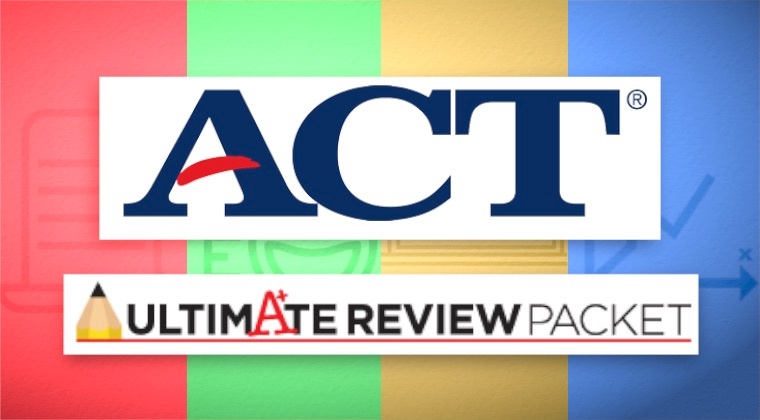Introducing the AP Government Ultimate Review Packet, an indispensable resource designed to empower students with the knowledge and confidence they need to excel in their AP Government exam. This comprehensive guidebook provides a structured and engaging journey through the core concepts, historical events, and key principles that shape American government and politics.
Within these pages, students will embark on an in-depth exploration of the three branches of government, the fundamental rights enshrined in the Bill of Rights, and the intricate interplay between political parties and interest groups. The packet also delves into the complexities of public policy, foreign policy, and the pivotal historical events that have shaped the American political landscape.
Key Concepts
The foundation of American government rests upon fundamental principles that shape its structure and operation. These principles include the separation of powers, checks and balances, popular sovereignty, and limited government.
The division of governmental powers among different branches ensures no single entity holds absolute authority. Checks and balances further strengthen this principle by allowing each branch to oversee and restrain the actions of the others.
Branches of Government
The U.S. government comprises three distinct branches:
- Legislative Branch:Enacts laws, controls spending, and declares war.
- Executive Branch:Enforces laws, conducts foreign policy, and serves as commander-in-chief.
- Judicial Branch:Interprets laws, settles disputes, and ensures constitutional adherence.
Checks and Balances, Ap government ultimate review packet
The system of checks and balances prevents any one branch from dominating the others. Examples include:
- The President’s veto power can be overridden by a two-thirds vote of Congress.
- The Supreme Court can declare laws unconstitutional, limiting the powers of the legislative and executive branches.
- Congress has the power to impeach and remove the President from office.
Constitutional Rights and Freedoms
The Bill of Rights, the first ten amendments to the Constitution, guarantees a wide range of rights and freedoms to individuals. These rights are designed to protect citizens from government overreach and ensure their basic liberties.The Constitution protects different types of rights, including:
- Civil rights, which safeguard personal liberty and equality, such as the right to free speech, religion, and assembly.
- Political rights, which allow citizens to participate in government, such as the right to vote and run for office.
- Due process rights, which protect individuals from arbitrary or unfair government actions, such as the right to a fair trial.
- Criminal procedure rights, which safeguard individuals accused of crimes, such as the right to an attorney and the right against self-incrimination.
However, these rights are not absolute and can be limited by the government under certain circumstances. The government may restrict speech that incites violence or poses a clear and present danger, or it may limit religious practices that harm others.The
Constitution also imposes limits on government power in protecting individual rights. For example, the Fourth Amendment protects against unreasonable searches and seizures, and the Fifth Amendment protects against self-incrimination and double jeopardy. These limitations ensure that the government cannot infringe upon individual rights without due process of law.
Political Parties and Interest Groups

The two-party system in the United States is a unique feature of American politics. The two major parties, the Democrats and Republicans, have dominated the political landscape for over a century. This system has both advantages and disadvantages. On the one hand, it provides stability and predictability to the political process.
On the other hand, it can limit the range of political choices available to voters.Interest groups play a significant role in shaping public policy in the United States. These groups represent a wide range of interests, from business and labor to environmental protection and civil rights.
Interest groups use a variety of tactics to influence policy, including lobbying, campaign contributions, and public relations.Campaign finance is a major issue in American politics. The amount of money spent on elections has increased dramatically in recent years, and there is concern that this money is having a corrupting influence on the political process.
Some argue that campaign finance reform is needed to reduce the influence of money in politics.
Role of Interest Groups
Interest groups play a significant role in shaping public policy in the United States. These groups represent a wide range of interests, from business and labor to environmental protection and civil rights. Interest groups use a variety of tactics to influence policy, including:
- Lobbying: Interest groups hire lobbyists to represent their interests before government officials.
- Campaign contributions: Interest groups can donate money to candidates for office who support their causes.
- Public relations: Interest groups can use public relations campaigns to raise awareness of their issues and build support for their positions.
Impact of Campaign Finance
Campaign finance is a major issue in American politics. The amount of money spent on elections has increased dramatically in recent years, and there is concern that this money is having a corrupting influence on the political process. Some argue that campaign finance reform is needed to reduce the influence of money in politics.One
of the most controversial aspects of campaign finance is the role of Super PACs. Super PACs are political action committees that can raise and spend unlimited amounts of money on behalf of candidates. This has led to concerns that Super PACs are giving wealthy donors too much influence over the political process.
Public Policy

Public policy refers to the set of principles and guidelines that guide government actions and decisions. It encompasses the objectives, goals, and priorities that governments establish to address various societal issues and concerns. Public policy plays a pivotal role in shaping the lives of citizens and the overall functioning of society.
Public policies are formulated through a complex process involving multiple actors, including elected officials, bureaucrats, interest groups, and the general public. The development and implementation of public policy involve identifying problems, analyzing available options, evaluating potential consequences, and making informed decisions.
Types of Public Policies
Public policies can be classified into various types based on their scope, purpose, and impact:
- Distributive policiesaim to distribute benefits or resources to specific groups or individuals, such as social welfare programs or tax breaks.
- Regulatory policiesestablish rules and regulations to govern specific activities or industries, such as environmental regulations or business licensing requirements.
- Redistributive policiesseek to redistribute wealth or resources from one group to another, such as progressive taxation or minimum wage laws.
- Constituent policiesare designed to benefit a particular constituency or geographic area, such as local infrastructure projects or special interest legislation.
Impact of Public Policy on Citizens’ Lives
Public policies have a profound impact on the daily lives of citizens. They affect a wide range of issues, including:
- Economic well-being:Public policies related to taxation, employment, and healthcare influence the economic opportunities and financial security of citizens.
- Health and safety:Public policies on healthcare, food safety, and environmental protection impact the health and well-being of citizens.
- Social welfare:Public policies on education, housing, and social services provide support and assistance to vulnerable populations and contribute to overall social welfare.
- Civil rights and liberties:Public policies on free speech, privacy, and equal protection of the law safeguard the fundamental rights and freedoms of citizens.
Foreign Policy
Foreign policy refers to the strategies and actions taken by a nation to interact with other countries and influence international affairs. American foreign policy aims to protect and advance the nation’s interests, promote stability, and ensure global security.
The objectives of American foreign policy include:
- Protecting national security and sovereignty
- Promoting economic prosperity
- Defending human rights and democracy
- Maintaining international stability and order
Tools of Foreign Policy
The United States employs various tools to implement its foreign policy objectives, including:
- Diplomacy:Negotiations, dialogue, and agreements with other countries
- Economic measures:Trade sanctions, tariffs, and foreign aid
- Military force:Use of armed forces for deterrence, peacekeeping, or war
- Intelligence gathering:Collecting and analyzing information about foreign governments and events
- Public diplomacy:Communicating with foreign audiences to promote American values and interests
Challenges of American Foreign Policy in the 21st Century
American foreign policy faces numerous challenges in the 21st century, including:
- Globalization:Interconnectedness of economies and societies, leading to increased interdependence and challenges
- Rise of non-state actors:Terrorist groups, multinational corporations, and NGOs play a significant role in international affairs
- Climate change:Global environmental challenges require international cooperation and action
- Nuclear proliferation:Spread of nuclear weapons poses a threat to global security
- Cybersecurity:Vulnerabilities to cyberattacks and espionage
Historical Events and Documents: Ap Government Ultimate Review Packet

The United States of America has a rich and diverse history, marked by significant events and documents that have shaped its government and society. These historical touchstones provide insights into the nation’s founding principles, constitutional framework, and the evolution of its political system.
Throughout American history, key events have served as catalysts for change and progress. From the American Revolution to the Civil War, the nation has faced challenges that have tested its resolve and shaped its identity. The signing of the Declaration of Independence in 1776 marked the birth of the United States as an independent nation, while the ratification of the Constitution in 1788 established the framework for a democratic government based on the principles of separation of powers and individual rights.
Historical Documents
Historical documents hold immense significance in understanding the foundations of American government and society. The Declaration of Independence, authored by Thomas Jefferson, articulates the fundamental principles of human rights, including the right to life, liberty, and the pursuit of happiness.
It served as a rallying cry for independence from British rule and continues to inspire people worldwide.
The Constitution, ratified in 1788, established the structure and powers of the federal government. It Artikels the separation of powers among the legislative, executive, and judicial branches, as well as the fundamental rights and freedoms of citizens. The Bill of Rights, adopted in 1791, further safeguards individual liberties by protecting freedom of speech, religion, and the press, among other rights.
Impact on American Government and Society
Historical events and documents have profoundly shaped American government and society. The American Revolution led to the establishment of a democratic republic, while the Civil War resulted in the abolition of slavery and the strengthening of the federal government. The Great Depression of the 1930s prompted the New Deal policies that expanded the role of government in the economy and social welfare.
The civil rights movement of the 1950s and 1960s fought for racial equality and led to the passage of landmark legislation such as the Civil Rights Act of 1964 and the Voting Rights Act of 1965. These events and documents have shaped the United States into a nation that values democracy, individual rights, and equality for all.
FAQ Compilation
What is the purpose of the AP Government Ultimate Review Packet?
The AP Government Ultimate Review Packet is designed to provide students with a comprehensive review of the key concepts, historical events, and principles covered in the AP Government exam.
How is the packet structured?
The packet is organized into six sections, each focusing on a different aspect of American government and politics, including key concepts, constitutional rights and freedoms, political parties and interest groups, public policy, foreign policy, and historical events and documents.
What are the benefits of using the packet?
The packet provides students with a structured and engaging review of the material, helps them identify areas where they need additional support, and builds their confidence for the exam.